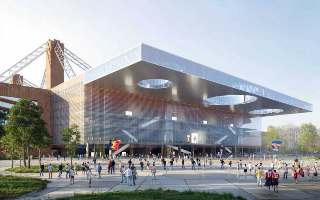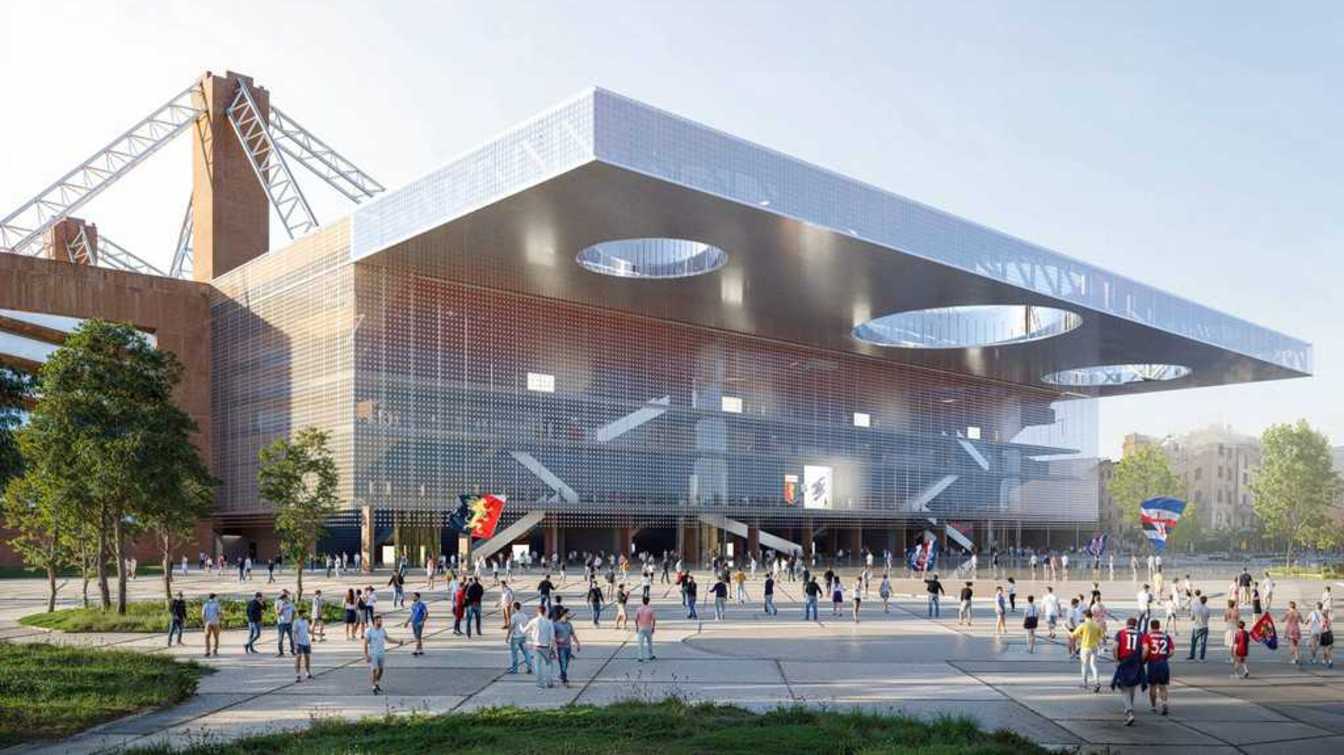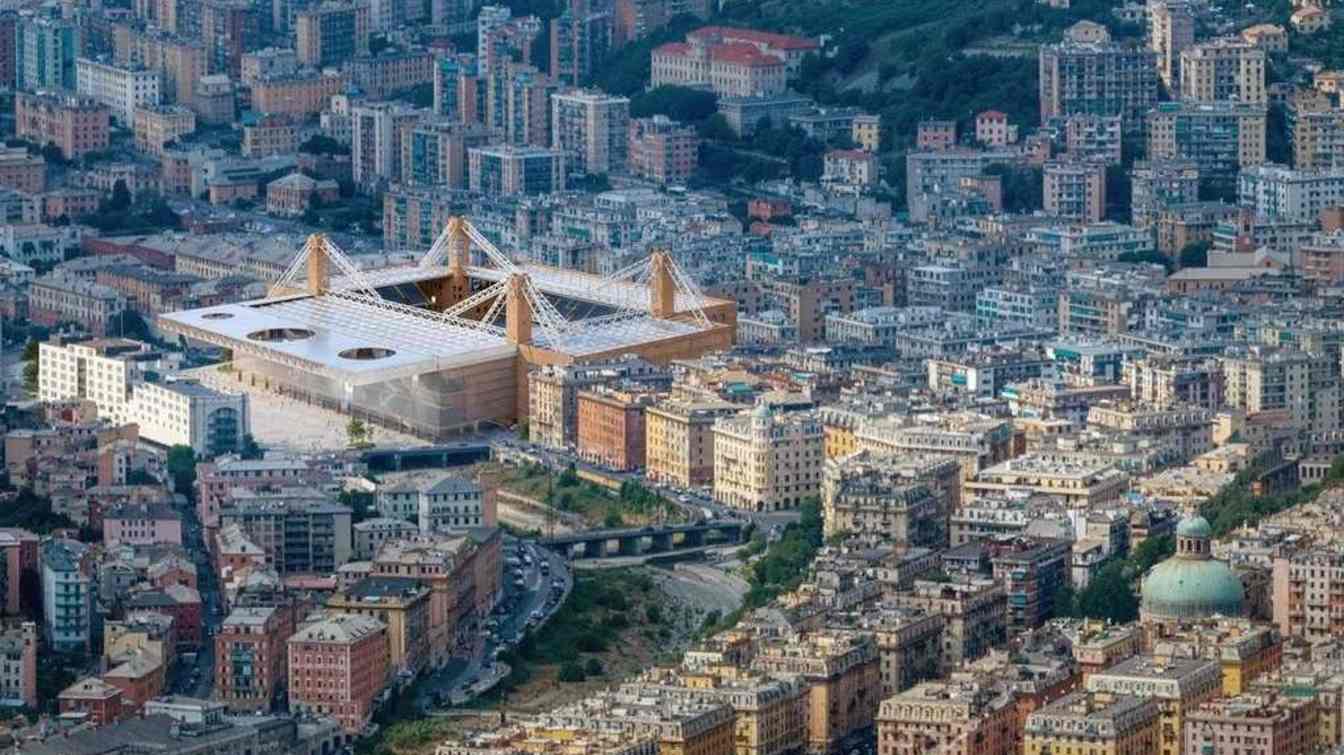Italy: Genoa launches stadium redevelopment with Euro 2032 in sight
source: StadiumDB.com; author: Paulina Skóra
 The City of Genoa has published the official documentation regarding the project for the comprehensive modernisation of Stadio Luigi Ferraris. The proposal is valued at over €100 million. In return, the clubs are requesting a 99-year concession to use the stadium, with construction expected to begin in the summer of 2026. The works are planned to last several months while maintaining match continuity, albeit with reduced capacity.
The City of Genoa has published the official documentation regarding the project for the comprehensive modernisation of Stadio Luigi Ferraris. The proposal is valued at over €100 million. In return, the clubs are requesting a 99-year concession to use the stadium, with construction expected to begin in the summer of 2026. The works are planned to last several months while maintaining match continuity, albeit with reduced capacity.
Advertisement
Goal: a top-class stadium and Euro 2032 candidacy
The project aims to transform Stadio Luigi Ferraris into a modern venue that meets the highest UEFA standards, making it eligible to host matches of Euro 2032 organised by Italy and Türkiye. Beyond sporting use, the plan envisions expanding the stadium’s role to concerts, congresses, cultural, educational and recreational events. The final capacity is expected to be around 32,000 spectators, with improved comfort and safety.
The design includes strengthening the structural framework to meet current seismic regulations, constructing a new access route for heavy vehicles serving major events—particularly near the North Stand—and relocating underground the high-voltage power lines that currently run adjacent to the stadium. Inside the venue, substantial reorganisation of space is planned, covering the stands, club facilities, offices and multifunctional areas, along with the possibility of increasing volumetric capacity within regulatory limits. A key element of the project is the creation of a football museum dedicated to Genoa’s rich sporting heritage.
The plan also includes the introduction of new service functions while excluding the construction of large shops or hypermarkets. Restaurants, gyms, medical centres and other facilities open on non-matchdays are permissible.
Return of the Peñaranda concept
The current concept largely builds upon Humbert Peñaranda’s 2024 design, which set the direction for ongoing redevelopment plans. His vision included relocating staircases to the exterior of the stands, freeing internal space for skyboxes and new commercial areas. The iconic corner towers were to receive enhanced visual identity through dedicated lighting, and an isolated away-fans sector with its own independent entrance was proposed. The project also included street-level service units to integrate the stadium more closely with daily urban life and increase its accessibility for residents.
Changes in the surrounding area and the role of Villa Musso-Piantelli
The redevelopment will extend to the areas around the stadium, organising them for safety zones during events and transforming them into parking and recreational spaces at other times. Genova Stadium is also requesting concession rights over the historic Villa Musso-Piantelli and its grounds, as well as control of parking areas at Piazzale Marassi and Via Canevari.
Costs for the city: €26.2 million and a 50-year rent-free concession
The project foresees a significant financial contribution from the city. Genoa would provide €19 million in staged payments aligned with construction progress and grant a 50-year concession valued at €7.2 million, allowing the clubs to use the site without rent. Only after half a century would Genoa and Sampdoria begin to pay fees for the stadium and the adjacent Villa Piantelli, although rent for selected parking areas would apply from the outset. City officials emphasise that unlike the earlier proposal to sell the stadium to a private investor for €14.5 million, the new model retains Stadio Ferraris as public property, even though it would effectively be leased to the clubs for nearly fifty years.
What’s next? 60 days for competing proposals
The city has opened a procedure allowing for competing proposals to be submitted within 60 days, accompanied by full technical documentation and a financial plan. All proposals will be reviewed by the Conference of Services, which will determine whether the Genova Stadium plan serves the public interest and can proceed to the final decision-making stage.
Mayor Salis has declared that if an agreement is reached and if the city secures the financial contribution expected by the clubs, the finalised project should be ready by June, enabling the first phase of construction to begin in summer 2026. A few months later, in October, UEFA is expected to announce whether Genoa will be included among the host cities for Euro 2032. During redevelopment, the stadium will continue to host matches, though with reduced capacity.
Political controversies
The proposal has also drawn criticism from some local politicians. Pietro Piciocchi, leader of Vince Genova and former deputy mayor, sharply denounced the plan, calling it a sale under another name.
In his view, a 99-year surface right effectively hands the stadium over to the clubs, while the additional demand for €26 million burdens the city more than earlier solutions. He announced an in-depth review of the full documentation and called for an extensive debate in the city council.
Advertisement
 StadiumDB
StadiumDB
